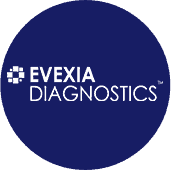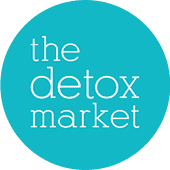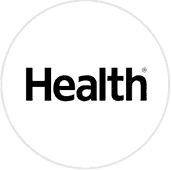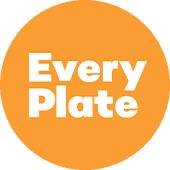Most of us use supplements in one form or another in the hope that it will boost our health levels. However, before you use them for yourself, it’s important to be aware of the pros and cons of dietary supplements.
Dietary supplements are often marketed as “silver bullets” — in other words, it’s implied that they’ll automatically make you feel and look better. The truth is a little more complicated than that: in some cases, they might not actually give you any benefits. In other cases, using dietary supplements incorrectly can come with health risks.
As the name suggests, dietary supplements supplement our diet by providing us with the nutrients we aren’t getting from food. We all have daily nutritional needs — certain amounts of vitamins and minerals that we need to take in per day — but it’s not always possible for us to meet those needs. In this case, dietary supplements can be helpful.
Many people believe dietary supplements can support their immune system, compensate for poor eating habits, or improve their overall health. And while this may be true to some extent, it’s also important to remember that supplements can also have some serious drawbacks.
The advantages of using dietary supplements
Your body needs certain vitamins and minerals in order to function properly. A lack of nutrients can lead to a range of physical and mental health issues.
Dietary supplements can benefit many people. A healthcare provider might suggest a dietary supplement if you’re facing a certain health issue or if you have a limited diet.
1. They supplement a poor or limited diet
If you eat a healthy diet consisting of a wide variety of foods, supplements will probably be unnecessary, as you’ll get all your nutrients from your plate. But many people have poor or limited diets. This could be because they don’t have access to high-quality food, or because they avoid certain foods for health or ethical reasons.
For example, vegans and vegetarians are often told to take vitamin B12 supplements, as they usually don’t get sufficient B12 from plant-based foods. If you don’t eat certain foods for whatever reason, a supplement might help you “make up” for the nutrients you’re missing out on.
2. Supplements can be necessary for people with certain conditions
For many people, a dietary supplement can be medically necessary. In this case, their doctor would advise them to use a supplement that addresses their needs. For example, if you have an iron deficiency, your doctor will probably recommend an iron supplement.
In certain situations, you could also benefit from using supplements. If it’s winter or if you live in a place that gets very little sunshine, taking a vitamin D supplement might be wise. Most pregnant people are advised to use folic acid supplements to prevent spina bifida. During flu season, your doctor might suggest a vitamin C supplement.
3. Supplements can help picky eaters
We all have foods that we don’t love, and some of us are pickier eaters than others. If you struggle to eat certain foods, especially if it’s a whole food group like vegetables or legumes, a supplement might help.
This is especially true for children. Children often go through phases where certain foods are unpalatable to them. We’ve all heard of (or been) kids who refused to eat anything but peas and ramen for weeks on end. While supplements can’t replace a balanced diet, they might offset the dangers that come with avoiding whole food groups.
The disadvantages of using dietary supplements
While dietary supplements can be beneficial for many people, they also have their risks and disadvantages. Some companies overexaggerate the benefits of dietary supplements, which can
1. Supplements are not always necessary
As a post on Harvard Health Online points out, supplements aren’t necessary for everyone. If you’re getting a healthy, varied diet that is rich in all the nutrients you need, and if you have no deficiencies, supplements might not actually do anything for you. Taking in an excess of vitamins will not make you any healthier.
Your body has a limit of how much nutrients it can absorb, and when you reach that limit, you’ll probably excrete it. In other words, you’ll urinate it out — which means those expensive supplements might literally end up in the toilet.
Considering how expensive supplements are, it’s wise to only use supplements that you’re sure you’ll need. If you’re not sure which supplements to use, talk to a healthcare professional.
2. Certain supplements can be dangerous when used incorrectly
Did you know that it’s possible to overdose on supplements?
As mentioned, if your body gets too much of a certain nutrient, it usually excretes that nutrient. In some cases, however, your liver and kidneys struggle to excrete it. In this case, it can be dangerous.
For example, too much vitamin A can lead to hypervitaminosis A, a condition that can damage your organs, particularly your kidneys. An excess of iron supplements can cause iron poisoning, which causes stomach pain and vomiting. Long-term iron poisoning can cause potentially fatal damage to the liver and brain.
Certain supplements should also be avoided during pregnancy, especially vitamins A and E as well as supplements like goldenseal and black cohosh.
What’s more is that supplements can interact with medications. In other words, if certain supplements are taken in combination with certain drugs, they can have adverse effects. For example, vitamin k can reduce the effectiveness of blood thinners while St. John’s Wort can reduce the effectiveness of oral contraceptives and antidepressant medication.
For this reason, you should clear it with your doctor before you take a new supplement. It’s also essential to tell your doctor about any and all supplements you use, especially when they prescribe a new medication for you.
3. Dietary supplements aren’t very regulated — and many are sub-par
The Food and Drug Administration (FDA) regulates dietary supplements in the US — to an extent. Dietary supplements aren’t as regulated as prescription medication and over-the-counter medication.
Based on the Dietary Supplement Health and Education Act (DSHEA), the FDA doesn’t have to review and approve supplements before they can be sold. While the FDA can pull supplements once people have reported adverse side effects, they actually can’t take a preventative approach by approving supplements for safety.
What this means is that certain dietary supplements can be sub-par. What do we mean by sub-par? For one, they could mislabel their products, which misleads you into thinking you’re using something you’re not using. A less-than-premium brand could include too much or too little of the target ingredient.
In order to avoid the disadvantages of using dietary supplements, it’s important to use the right dosage — but you should also use high-quality supplements. Never purchase supplements from a low-quality brand, even if it’s more affordable. Your health is worth the investment.
How to use supplements correctly
In order to avoid the dangers of supplements and get the most out of it, it’s important to use supplements correctly.
Talk to your doctor
If you’d like to use supplements it’s a good idea to talk to your doctor or primary health practitioner first. They can help you figure out whether taking supplements is worthwhile. If you have a specific condition you’d like to treat, it may be that you need prescription medication or a new self-care strategy instead of a dietary supplement.
Your doctor might run blood tests to figure out whether you’re lacking any specific nutrient. Blood tests may be pricey, but it’s way more costly to keep using vitamins that aren’t actually going to help you.
Lastly — and this is important — your doctor will be able to advise you on whether it’s safe. As mentioned, certain supplements can interact with medication. If you’re on any medication, whether it’s chronic medication or a short course of meds, it’s essential to check with your doctor before using dietary supplements.
Use the correct dosage
Follow your doctor’s orders when it comes to dosage. Your doctor might also recommend how to take the supplement (for example, which time of day to use it and whether to take it with food). This is important because it can affect how well your body absorbs the supplements.
If your doctor didn’t give you any specific instructions, follow the instructions on the packaging. The label usually advises you on a maximum dosage, which you should not exceed. In the worst case, too many supplements could harm your body; in the best case, your body will excrete the excess nutrients (which means you’re wasting money).
Opt for high-quality brands
Always purchase supplements from reputable companies. As mentioned, the FDA doesn’t approve dietary supplements before they go to market. This means you’ll have to do your due diligence and research brands before purchasing health products from them. Your doctor might be able to suggest a high-quality supplement brand.
Supplements can’t replace a nutritious diet
Supplements are meant to do just: supplement your diet. While they can help people with poor diets, they’re no replacement for food. It’s more effective to improve your diet and take supplements when needed, according to a 2019 study that surveyed 30,899 participants.
To get the most out of your supplements, use them alongside a balanced diet. A diet that includes a variety of different foods, especially fresh foods, is essential for your physical and mental health.
Supplements can be hugely beneficial for many people. But incorporating supplements into your routine should be a conscious and informed decision — not something you should do because everyone else seems to be doing it. When it comes to your health, you should always err on the side of caution and research before you buy.
For those of you who are considering Knew Health, we have an excellent partnership which allows our Members to receive a 35% discount off MSRP on over 20,000 different supplements and health products from the most trusted brands. This is an excellent way to reduce your costs on your health resources and everything will be delivered right to your door.
For more health resources and additional information on our monthly Membership services, check out our Services page or chat with our Support Team when it’s convenient for you.
Resources
- Craig, W. J. 2010. Nutrition concerns and health effects of vegetarian diets. DOI: 10.1177/0884533610385707
- Dietary supplements. 2019. https://www.fda.gov/food/dietary-supplements
- Getting your vitamins and minerals through diet. 2020. https://www.health.harvard.edu/womens-health/getting-your-vitamins-and-minerals-through-diet Hammoud, D. et al. 2014. Hypercalcaemia Secondary to Hypervitaminosis A in a Patient with Chronic Renal Failure. DOI: 10.7727/wimj.2011.171
- Information for Consumers on Using Dietary Supplements. 2019. https://www.fda.gov/food/dietary-supplements/information-consumers-using-dietary-supplements
- Manoguerra, A. S. et al. 2005. Iron ingestion: an evidence-based consensus guideline for out-of-hospital management. DOI: 10.1081/clt-200068842
Pawlak, R. et al. 2013. How prevalent is vitamin B(12) deficiency among vegetarians? DOI: 10.1111/nure.12001
Disclaimer: This information is being provided to you for educational and informational purposes only. It is being provided to educate you about how to take care of your body and as a self-help tool for your own use so that you can reach your own health goals. It is not intended to treat or cure any specific illness and is not to replace the guidance provided by your own medical practitioner. This information is to be used at your own risk based on your own judgment. If you suspect you have a medical problem, we urge you to take appropriate action by seeking medical attention.









































